 Head Control
Head ControlThe first and one of the most important development is babies is to develop head control. Make the baby lie on the tummy which will stimulate and improve head controlling in them.
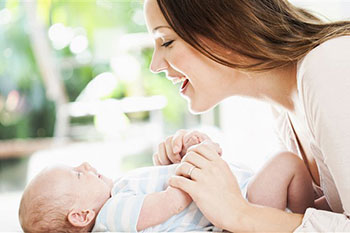 Talk
TalkTalking to the baby often is very good. the baby will learn to pick up the words and make an attempt, hence try to talk to the baby constantly like she is an adult. Talking while you feed the baby is the best time as you can say Good girl/boy, open your mouth and show the baby in actions of what you are saying.
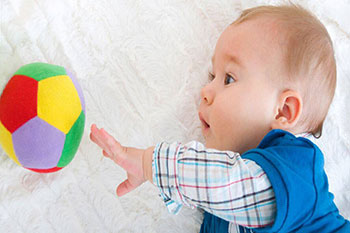 Ball Game
Ball GameTake some time to play a ball game with the baby. Roll the ball back n forth and encourage her to roll the ball back to you. Until the baby gets a hang of it and you two can enjoy the play time together.
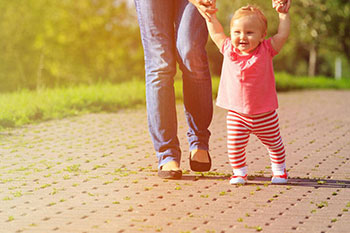 Stimulate Walking
Stimulate WalkingKeep a toy on the bed a little beyond the reaching distance and encourage her to reach for it, you may notice that she will start stretching for it if the baby cannot reach the baby will start taking little steps to reach the toy. In this way the baby will start walking by standing holding on to the bed or furniture’s around. Provide complete support by holding child’s hand so that the child overcomes the fear of falling down. If the baby doesn’t want to try don’t force.
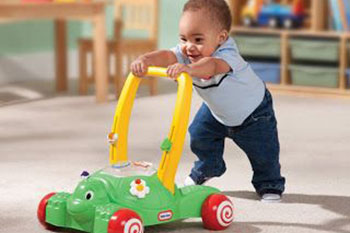 Push Toys
Push ToysToys stimulate development in babies and toddlers faster, give your baby push toys so that the baby can hold the toy and push forward while walking.
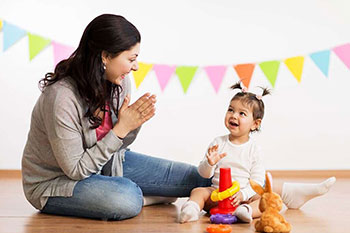 Applaud all Triumphs
Applaud all TriumphsEncourage the baby by praising and cheering every time the baby shows some learning. This will make the baby attempt to try more of the skills.
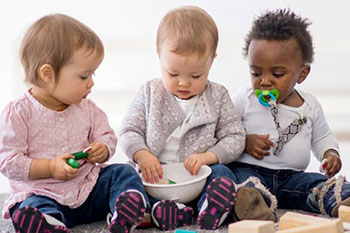 Get your child to Socialize
Get your child to SocializeChildren learn faster when they spend time with the other kids. Arrange for some play dates or invite some kids over home. Your baby will develop improved social skills.
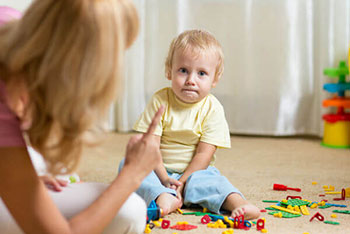 Avoid Restrictions
Avoid RestrictionsAllow the child to do all activities that they enjoy, do not restrict the child and hold her back even if its running or making some sort of noise its ok to allow the child to learn when she is the mood for learning.
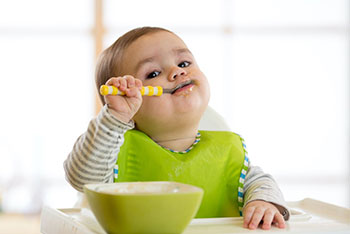 Food
FoodOffering the child to eat on her own is best. get a feeding chair and let her sit with you on the table and try and eat in her own way as much as she can. This will help her learn to eat on her own and co-ordination of hands.